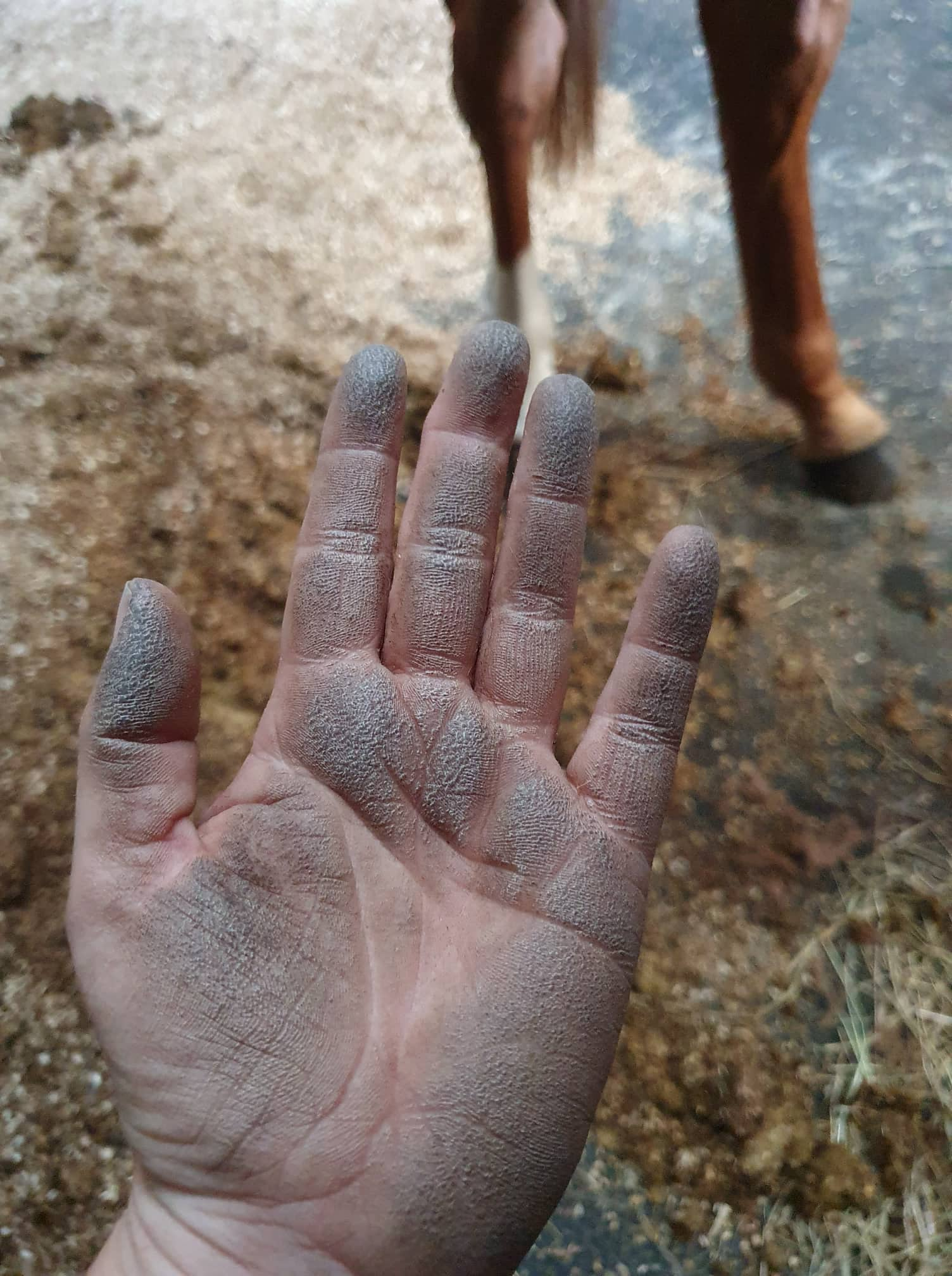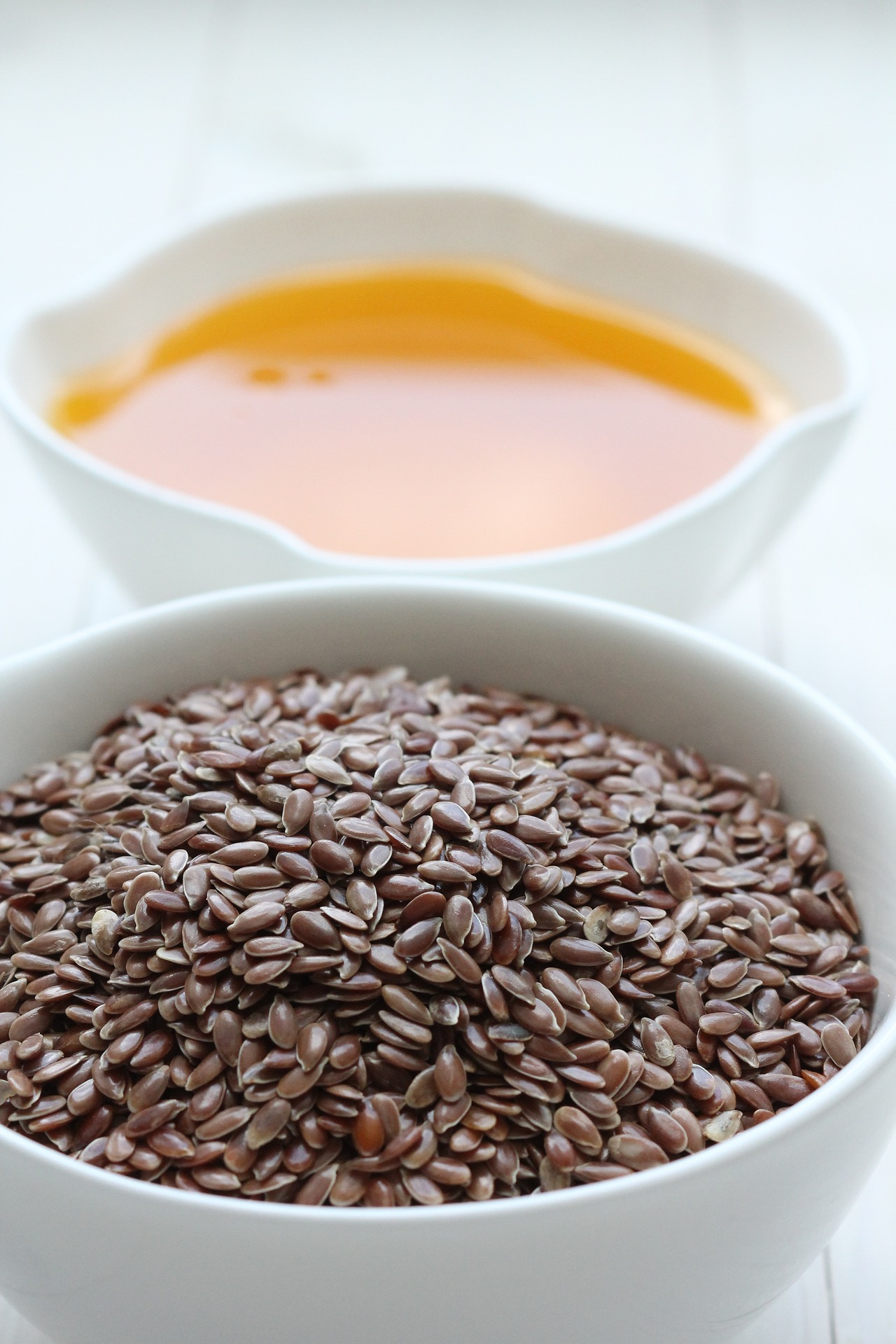The ins and outs on Flax seeds
Flax seeds ( linseed ) are a popular product and many horse owners feed them to their horse. Whole flax seeds, milled/micronized, cooked, or flax seed oil.
The question is, why do you feed this and does it really benefit your horse? Lets find out!
What is flax seed?
Flax seed comes from the flax plant. It is known for its health benefits. It is known to support digestion, its protein content, its high in fat and it is a source of ALA (type of omega-3 fatty acid )
But it also contains LA ( Linoleic acid ) which promotes the formation of inflammation. ALA has the opposite effect and reduces inflammation. It formats to an anti-inflammatory omega 3, known as DHA. In order to format to this you need delta 5 & 6 desaturases. This is an enzymatic process.
Flaxseed is linoleic acid. Just like grass.
It has the potential to be converted to omega 3 but it isn’t an omega 3!
So, if your horse has a disturbance in its delta 5 and 6 then the flaxseed oil cannot be converted to EPA/DHA.
This disturbance can be caused by:
1. A bad pH in the gut
2. Insulin resistance slows down the delta 5 and 6 even more
3. A shortage of vitamin D deteriorates the delta 5 and 6
If your horse can not convert to omega 3 then the flaxseed/oil will work inflammatory.
How to feed flax?
There are different ways to feed flax to your horse and there are different products sold on the equine market. Such as flax seed oil, micronized flax seeds, cooked & whole flaxseeds. So how do you choose on which one to feed. Lets take a look at each type.
1. Flax seed oil
It is important to know that horses do not have a gallbladder to break down fat. They do not produce and stock bile like us humans do. This means that if you feed a large amount of oil that the oil cannot be digested by the small intestines and it will travel to the large intestines, where it will cause dysbiosis.
Also, your horse will put on unhealthy weight. The oil will be stored in connective tissue because it is seen as waste material. Your horse will then become lymphatic (lymph fat).
Another way for the body to get rid of these toxins is by excreting them via the skin. Normally the liver and kidneys will get rid of toxins via urea. But when there is an overload then the kidneys will excrete them via skin ( sebaceous glands ). You will see this when you rub your horse and your hands turn greyish/black and sticky.

And last but not least, horses cannot get energy from fat. They get energy from fibres!
Also, oils go rancid very quick. Once you have opened the bottle of oil it will taste bitter within a couple of days. This is because of cyclolinolpeptides. Men suspects that these effect the immune system and lymphocytes. Besides this the oil also goes rancid. This effects the positive effects of the oil and should not be fed anymore.
2. Micronized flax seed
Micronizing flax means that you break down the proteins in the process. You also break down the toxic components that flax seed has. But this micronized flax seed also goes rancid very fast. Most bags of micronized flaxseed contain preservatives to keep it from going rancid. And preferable we don’t want to feed our horses any preservatives
3. Whole flaxseeds
Yes you can feed whole flaxseed to your horse up to 200 gram per day. Not more than that because of the cyanide. However, because of the hard coating and the seed being so small, the horse wont be able to grind it himself and digest the nutrients properly, especially the fatty acids.
4. Cooked flaxseeds
When you cook flaxseeds ( 20-30 minutes ) the cyanide disappears for 95%. So when feeding large amounts of flaxseed it is recommended that you cook it. An advantage of cooking it, is that it goes slimy and the slime has a positive and calming effect on the stomach and intestinal mucosa.

How long should I feed flaxseed?
We usually recommend to feed it for 5-6 weeks. Especially when horses change their coat during spring and Autumn or as a cure for 7-10 days.
When should I feed flaxseed?
- To get rid of sand in the intestines
- After colic or constipation
- With inflamed stomach and intestines
- When changing coat
- With sweet itch
BUT….Please make sure that your horse can convert it to omega 3, as mentioned above. If not then you can cause your horse more problems than it already has.
https://pubmed.ncbi.nlm.nih.gov/25038994/
https://gettyequinenutrition.com/pages/feeding-flaxseeds-do-you-have-all-the-facts
